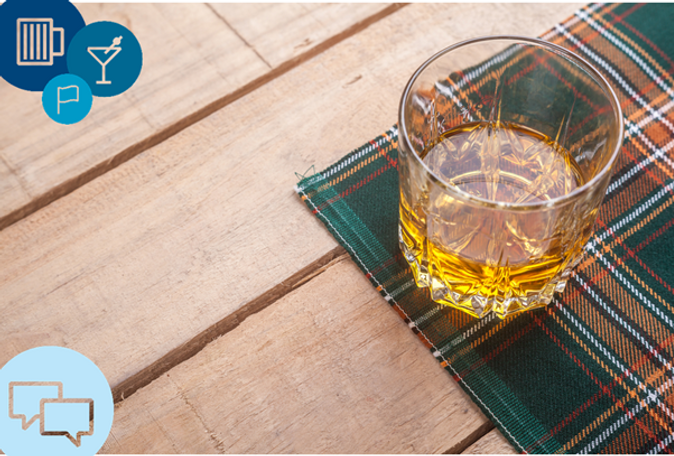
The Scottish Government is currently consulting on whether it should impose further restrictions on alcohol marketing to reduce the appeal of alcohol to young people. CAP introduced tougher rules on alcohol advertising as long ago as 2006, including the prohibition on featuring under 25s in alcohol ads.
Let’s take a look at what some of the rules say and how the ASA has applied them against a number of Scottish licensed venues and alcohol producers.
Excessive drinking
Perhaps an obvious no-no, but ads featuring alcohol should be socially responsible and not encourage people to drink to excess. The ASA upheld four meme-laden social media posts that variously suggested that drinking was the only thing that brought adults enjoyment and that people should prioritise it over their work responsibilities (City Clubs (Edinburgh) Ltd).
A similar approach by The Scottish Gin Society also came up short. The ASA considered that the use of memes such as “I only drink gin on two occasions: When I’m thirsty and when I’m not thirsty” and “Shut up liver, you’re fine! Gin?”, while intended to be humorous and light-hearted, had the effect of condoning excessive drinking.
Even mistakes can lead to an upheld ruling. A licensed venue’s accidental omission of a pluralising ‘s’ from the word “bestie” in the caption of a social media post meant the ASA inferred from an image of 9 cocktails that the drinks were intended to be shared between two friends. Though that wasn’t the marketers intention, the complaint was upheld (Stonegate Pub Company Ltd).
Irresponsible handling
The way alcohol is shown being handled is also important – depictions of bottles of alcohol being poured into people’s mouths is a quick way to have an ad banned (Montpeliers (Edinburgh) Ltd).
Under 25s
While the legal drinking age is 18, the CAP Code takes a stricter line and prohibits under 25s, and those who look under 25, from being shown drinking or playing a significant role in ads featuring alcohol. Licensed venues need to take particular care when featuring patrons on their social media pages (Stonegate Pub Company Ltd; Montpeliers (Edinburgh) Ltd; Signature Pubs Ltd).
Therapeutic qualities
Ads should not suggest that alcohol is capable of changing mood or physical condition. A Facebook post that suggested adult mistakes or minor injuries could be fixed with alcohol (Meikles of Scotland Ltd) was found to have implied that alcohol had therapeutic qualities. Similarly, Facebook posts by The Scottish Gin Society claiming that gin had medicinal qualities to the extent that it could help with period pain, boost the drinker’s metabolic rate and eradicate “incurable sadness” implied that gin could treat depression and pain, in breach of the Code.
Sex and drugs
Linking alcohol to sexual success is an easy route to an upheld ruling, such as in the case of The Scottish Gin Society when they posted memes on social media which suggested that alcohol could enhance attractiveness and lead to sexual success. Drugs and alcohol should also never be paired as The Cornish Rum Company Ltd found when they featured imagery and wording associated with the illicit drug, Cannabis, on social media and in a Scottish trade magazine.
Health and Nutrition claims
Even if a marketer sticks to the rules above, they can still trip up in a more technical way. There are only three permitted nutrition claims that can be made for alcohol – low alcohol, reduced alcohol, and reduced energy. Straying beyond these permitted claims will cause problems as Eden Mill Distillery learned when they claimed their gin contained more antioxidants than blueberries and more vitamin C than oranges. Statements about calorie content also need to be carefully expressed to avoid making non-permitted nutrition claims (Tennent Caledonian Breweries UK Ltd).
For further advice see our AdviceOnline entry here and if you would like bespoke advice on your non-broadcast advertising, the Copy Advice team is here to help.
More on
-
Keep up to date
Sign up to our rulings, newsletters and emargoed access for Press. Subscribe now.


